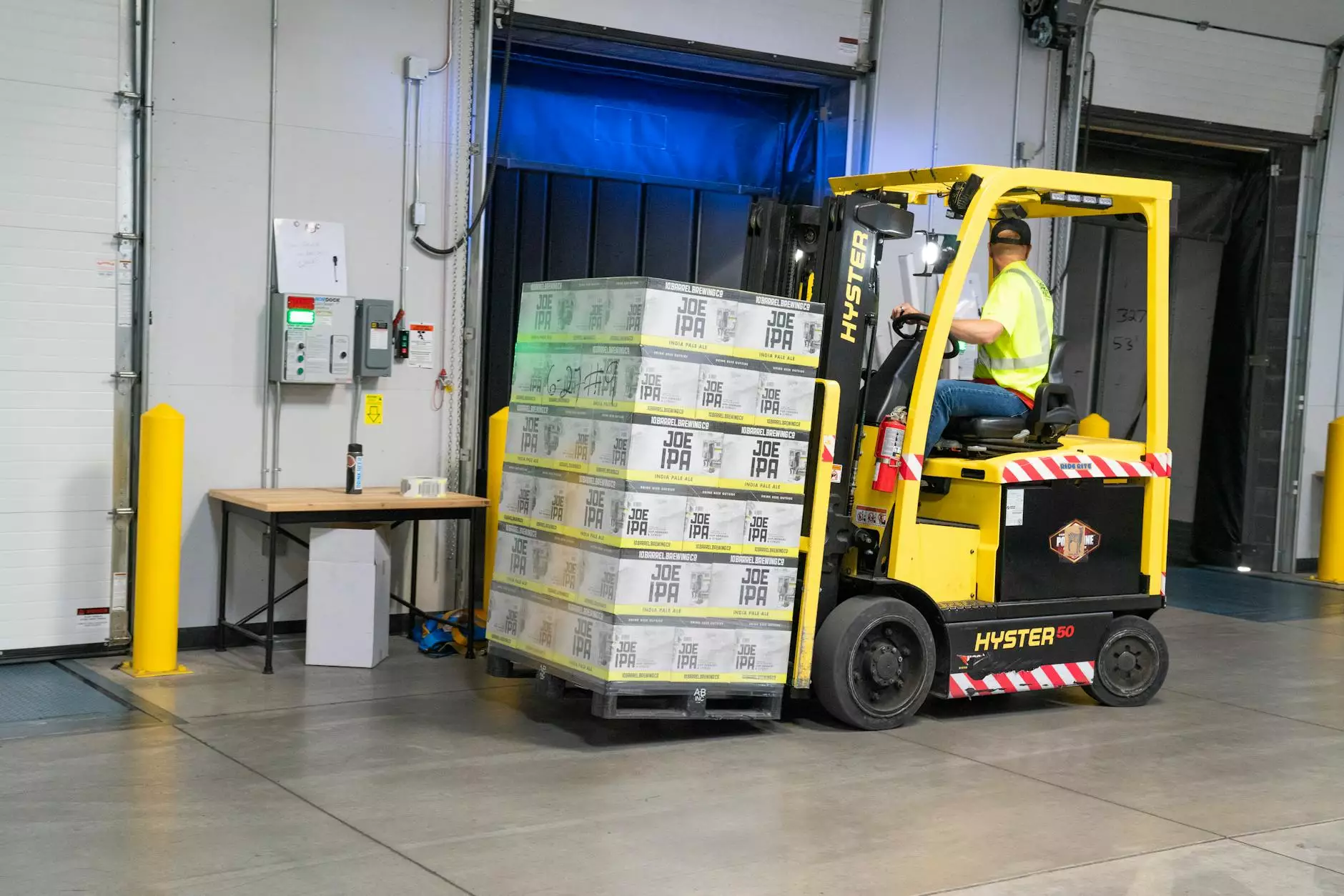Small Freight Shipping: An In-Depth Exploration

In today's fast-paced business environment, understanding the intricacies of small freight shipping is crucial for enterprises looking to optimize their logistics and supply chain operations. Whether you are a small business owner or work within a larger corporation, mastering the dynamics of small freight can lead to significant cost savings and efficiency improvements. This guide will delve into the key aspects of small freight shipping, aiding you in making informed decisions that can positively impact your bottom line.
What is Small Freight Shipping?
Small freight shipping refers to the transportation of smaller shipments, typically ranging from a few pounds to a few hundred pounds. Unlike standard freight carriers that deal primarily with large-scale shipping needs, small freight solutions cater specifically to businesses and consumers requiring flexible, efficient options for smaller cargo. This shipping method can include anything from palletized goods to packaged business supplies, and it encompasses various transportation modes, including ground, air, and sea.
The Importance of Small Freight Shipping
Understanding the significance of small freight shipping is essential for various reasons:
- Cost Efficiency: Smaller shipments mean lower costs. With targeted small freight options, businesses can save on shipping expenses significantly.
- Speed: Small freight services often provide quicker turnaround times, becoming a vital solution for urgent shipping needs.
- Flexibility: Small freight shipping accommodates changing business dynamics, allowing companies to adapt to demand fluctuations easily.
- Accessibility: Small businesses can leverage small freight solutions without the need for extensive logistics networks.
Types of Small Freight Shipping Options
There are various modes of small freight shipping, each with unique advantages and best-use scenarios:
1. Ground Shipping
Ground shipping is commonly used for small freight. Trucking services offer reliability and often a large network for deliveries. They work best for shipments within the same region, providing an economical option for transporting small loads.
2. Air Freight
For urgent deliveries, air freight is unsurpassed. It is ideal for time-sensitive shipments, despite being more expensive than ground services. Businesses shipping high-value or perishable items often use air freight to ensure goods arrive promptly.
3. Sea Freight
Although typically used for larger shipments, sea freight can effectively handle small freight loads, especially for international shipping. It is a slower method but can be more economical for businesses not in a hurry.
Selecting the Right Small Freight Service Provider
Choosing the right shipping provider is critical for optimizing costs and ensuring reliable delivery. Here are essential factors to consider:
- Reputation: Research potential providers to find those with favorable reviews and proven track records of reliability.
- Pricing: Get quotes from multiple companies. Ensure there are no hidden fees that could affect the overall cost.
- Service Options: Look for providers offering tailored solutions, including expedited shipping, tracking capabilities, and comprehensive customer service.
- Insurance: Verify what level of insurance and liability coverage is offered to protect your goods during transit.
Best Practices for Small Freight Shipping
To maximize the efficiency of your small freight shipping operations, consider implementing the following best practices:
1. Proper Packaging
Using appropriate packaging helps avoid damage during transit. Invest in quality materials that provide adequate protection and ensure that goods are securely packed to minimize the risk of breakage.
2. Accurate Weight and Dimensions
Providing accurate weight and dimensions of your shipment can prevent additional charges and ensure better planning by the shipping provider. Always double-check measurements before finalizing shipping arrangements.
3. Utilize Technology
Leverage technology for tracking shipments in real-time, managing inventory, and communicating with your shipping provider seamlessly. Various software options can streamline your logistics operations significantly.
4. Plan Ahead
Consider seasonal fluctuations and plan shipments accordingly. By anticipating the busy periods, you can secure better rates and ensure timely deliveries.
Challenges in Small Freight Shipping and Solutions
Even though small freight shipping offers numerous benefits, businesses may still face certain challenges. Here are common issues and their solutions:
1. Cost Increases
Solution: Regularly review your shipping contracts and compare rates among different providers. Negotiating with your chosen carrier for better rates as you're scaling can also be beneficial.
2. Delivery Delays
Solution: Choose a provider known for timely deliveries and keep open lines of communication to address issues proactively.
3. Limited Availability
Solution: Research and partner with multiple freight carriers to ensure availability for when you need to ship products.
Industry Trends Impacting Small Freight Shipping
Staying informed about trends affecting small freight shipping can provide your business with a competitive edge:
- Sustainability: More companies are adopting eco-friendly practices, including sustainable shipping solutions that reduce carbon footprints.
- Technological Advancements: Innovations in technology, including GPS tracking and automation in warehouses, are transforming logistics and providing better real-time data for decision-making.
- Globalization: As businesses expand overseas, the demand for international small freight shipping is growing. Understanding customs and duties becomes crucial to avoid delays.
Conclusion: Mastering Small Freight Shipping
In conclusion, navigating the world of small freight shipping presents both challenges and opportunities. By understanding the intricacies involved, selecting the right service provider, and implementing best practices, businesses can maximize efficiency and reduce costs. As logistics continue to evolve, staying ahead of trends will further empower your business to thrive in a competitive marketplace.
For more information on small freight shipping solutions that can enhance your logistics capabilities, visit shipnorthamerica.com today.









